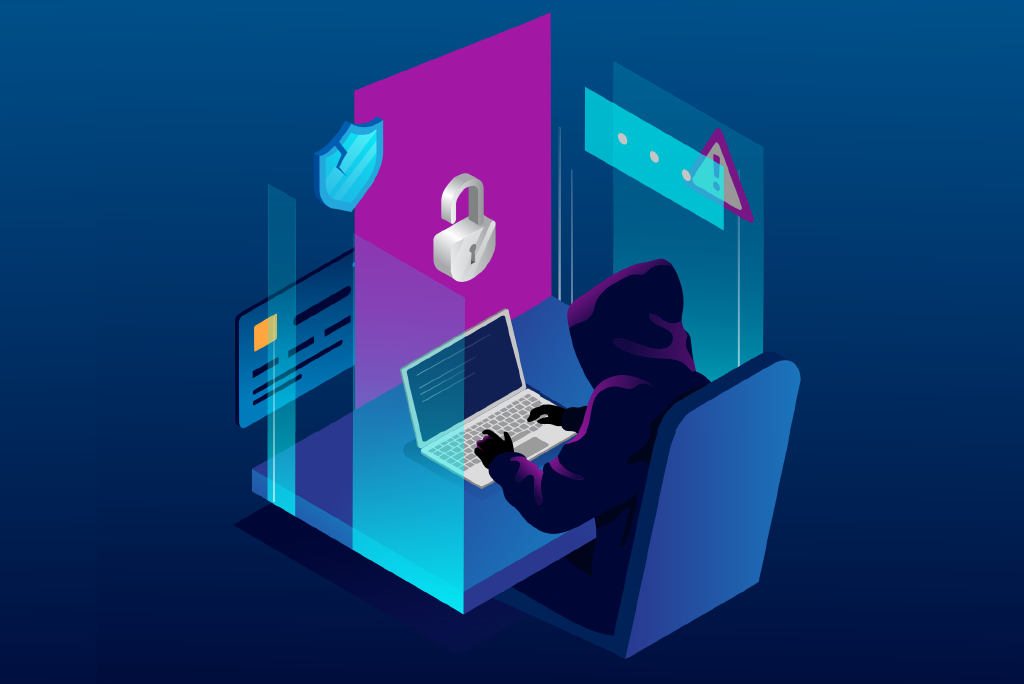28
As a business owner, it’s important to be aware of the many cyber security risks that are out there. If you’re not taking steps to mitigate these risks, you could be in for a world of trouble. In this post, we will discuss 7 common cyber security risks that businesses need to be aware of. We’ll also provide tips on how to mitigate these risks. So, if you’re concerned about the safety of your business data, read on!
Risk #01: Cyber Attacks
One of the most common cyber security risks that businesses face is cyber-attacks. These attacks can come in many different forms, such as malware, ransomware, and phishing scams. If your business isn’t prepared for a cyber-attack, you could be in for a lot of trouble. Try using only licensed programs, this will much eliminate risk of viruses getting into your system.
How to Mitigate This Risk: There are several things that you can do to mitigate the risk of cyber-attacks. First, make sure that your employees are well-trained on how to identify and avoid potential threats. Second, install comprehensive security software on all of your devices. And finally, create strong passwords and update them regularly.
Risk #02: Unsecured Networks
Another common cyber security risk for businesses is unsecured networks. If your business network isn’t properly secured, it could be vulnerable to attack. This could lead to the theft or destruction of sensitive data.
How to Mitigate This Risk: There are several things that you can do to secure your business network. First, make sure that all of your devices are password-protected. Second, use firewalls and other security software to protect your systems from intruders. And finally, keep your software and operating systems up to date.

Risk #03: Data Theft
One of the biggest dangers posed by cyber-attacks is the theft of sensitive data. It can include anything from customer credit card information to trade secrets and intellectual property. If this data falls into the wrong hands, it could be used to harm your business or even your customers.
How to Mitigate This Risk: There are several things that you can do to protect your data from theft. First, encrypt all of your sensitive data. Second, back up your data and store them in a secure location. And finally, limit access to your data to only those employees who need it.
Risk #04: Phishing Scams
Phishing scams are another common kind of cyber-attack. In a phishing scam, criminals send fake emails or text messages that appear to be from a legitimate source. They then use these messages to trick people into giving them sensitive information like passwords or credit card numbers.
How to Mitigate This Risk: There are several things that you can do to protect yourself from phishing scams. First, be wary of any emails or text messages that seem suspicious. Second, never click on links in these messages unless you’re absolutely sure they’re legitimate. And finally, if you do receive a suspicious message, report it to your IT department or security team immediately.
Risk #05: Malware
Malware is a type of software that can be used to damage or destroy computer systems. It can also be used to steal sensitive data. If your business falls victim to a malware attack, you could lose important data or even be forced to shut down your operations.
How to Mitigate This Risk: There are several things that you can do to protect your business from malware attacks. First, install anti-virus and anti-malware software on all of your devices. Second, keep your operating systems and all software up to date. And third, be careful about where you download files from and what websites you visit.
Risk #06: Ransomware
Ransomware is a type of malware that encrypts a victim’s files and demands a ransom be paid in order to decrypt them. This can be a costly attack for businesses, as it can result in the loss of important data.
How to Mitigate This Risk: There are several things that you can do to protect your business from ransomware attacks. First, install anti-virus and anti-malware software on all of your devices. Second, keep your software and operating systems updated. And third, be careful about where you download files from and what websites you visit.
Cyber security risks can be costly for businesses. By understanding these risks and taking steps to mitigate them, you can help protect your business from data loss and other negative consequences. If you don’t want to cause risks to your business, you should better use only licensed programs and software installed on all PC. Adobe UK will be installed, and you can be sure that your business will not be hurt. Enjoy using the software without risks with Adobe UK. If you are searching malware detection programs, spyware or best VPN services for your business, look no further than Iolo UK. With them your business will be safe and secured. Check them out today!

